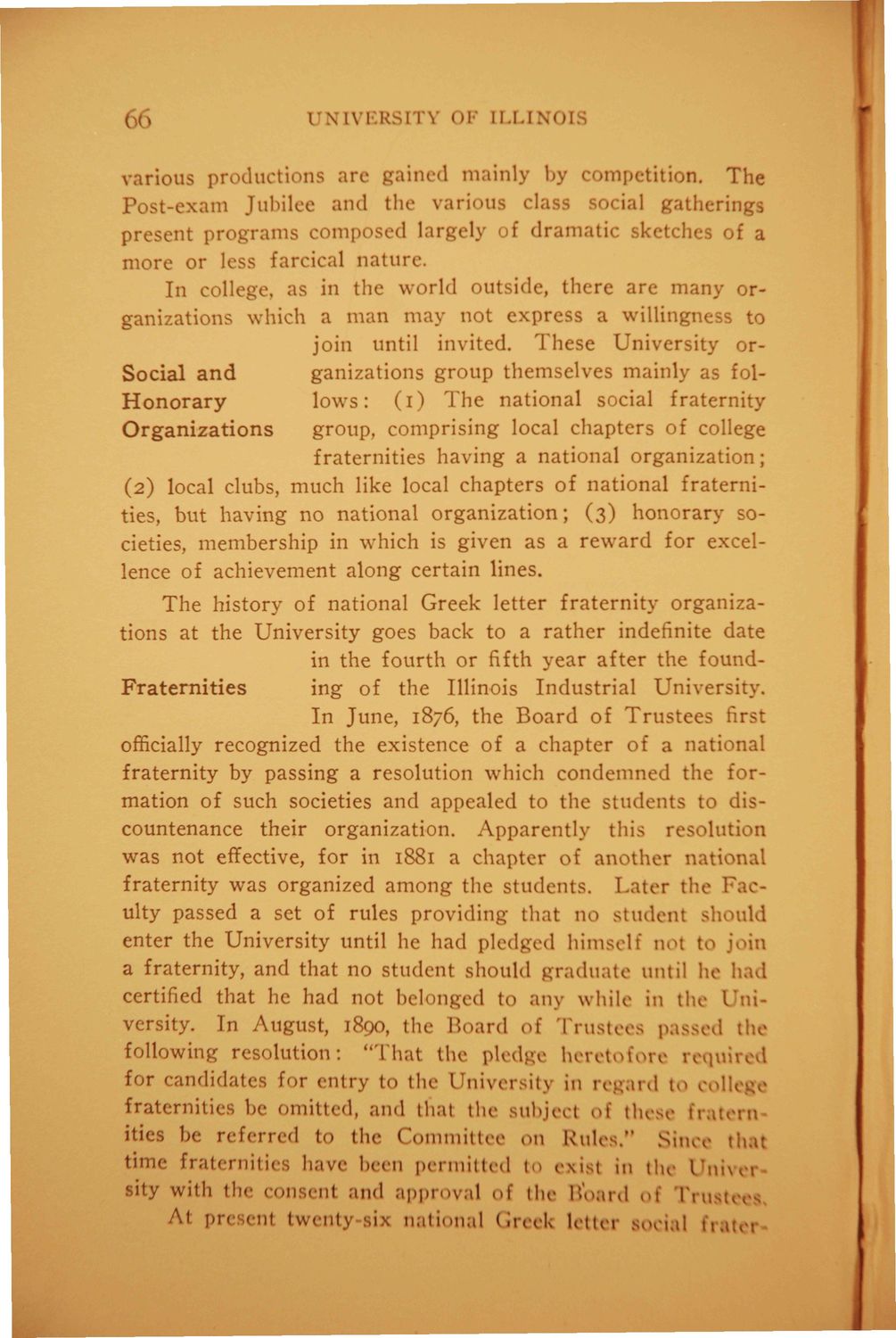Caption: Booklets - Facts for Freshmen (1914)
This is a reduced-resolution page image for fast online browsing.

EXTRACTED TEXT FROM PAGE:
06 UKIVI RSITV OF ILLINOIS l>y com; tition. The various productions are gained mainh Post-exam Jubilee and the various class social gatherin present programs composed largely of dramatic sketches of a more or less farcical nature. In college, as in the world outside, there are many organizations which a man may not express a willingness to join until invited. These University orSocial a n d ganizations group themselves mainly as folHonorary l o w s : ( i ) T h e national social fraternity Organizations group, comprising local chapters of college fraternities having a national organization; (2) local clubs, much like local chapters of national fraternities, but having no national organization; (3) honorary societies, membership in which is given as a reward for excellence of achievement along certain lines. The history of national Greek letter fraternity organizations at the University goes back to a rather indefinite date in the fourth or fifth year after the foundFraternities ing of the Illinois Industrial University, In June, 1876, the Board of Trustees first officially recognized the existence of a chapter of a national fraternity by passing a resolution which condemned the formation of such societies and appealed to the students to discountenance their organization. Apparently this resolution was not effective, for in 1881 a chapter of another national fraternity was organized among the students. Later the Faculty passed a set of rules providing that no student should enter the University until he had pledged himself not to An a fraternity, and that no student should graduate until he had certified that he had not belonged to any while in the University. In August, 1800, the Board of Trustees passed the following resolution: "That the pledge heretofore reqilil 1 for candidates for entry to the University in regard to college fraternities be omitted, and that the subject of these t'ratern itics be referred to the Committee on Rules." Since that time fraternities have been permitted to exist In the Uni\ 1 sity with the consent and approval <»f the Board of Trust At present twenty national (Jn k letter social fnu<
|